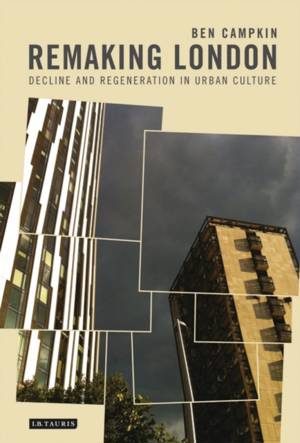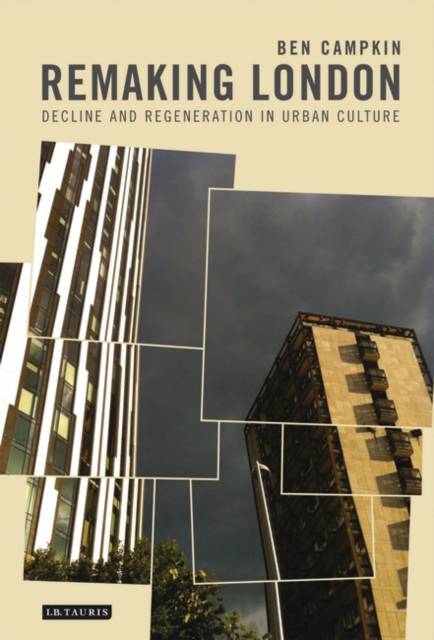
- Afhalen na 1 uur in een winkel met voorraad
- Gratis thuislevering in België vanaf € 30
- Ruim aanbod met 7 miljoen producten
- Afhalen na 1 uur in een winkel met voorraad
- Gratis thuislevering in België vanaf € 30
- Ruim aanbod met 7 miljoen producten
Omschrijving
Between the slum clearances of the early twentieth century and debates about the post-Olympic city, the drive to 'regenerate' London has intensified. Yet today, with a focus on increasing land values, regeneration schemes purporting to foster diverse and creative new neighbourhoods typically displace precisely the qualities, activities and communities they claim to support. In Remaking London Ben Campkin provides a lucid and stimulating historical account of urban regeneration, exploring how decline and renewal have been imagined and realised at different scales. Focussing on present-day regeneration areas that have been key to the capital's modern identity, Campkin explores how these places have been stigmatised through identification with material degradation, and spatial and social disorder. Drawing on diverse sources - including journalism, photography, cinema, theatre, architectural design, advertising and television - he illuminates how ideas of decline drive urban change.
Richly illustrated and engagingly written, Remaking London is both a compelling account of contested sites from the capital's recent history and a powerful critique of the contradictions of contemporary regeneration.
Specificaties
Betrokkenen
- Auteur(s):
- Uitgeverij:
Inhoud
- Aantal bladzijden:
- 256
- Taal:
- Engels
- Reeks:
Eigenschappen
- Productcode (EAN):
- 9781780763088
- Verschijningsdatum:
- 13/08/2013
- Uitvoering:
- Paperback
- Formaat:
- Trade paperback (VS)
- Afmetingen:
- 155 mm x 231 mm
- Gewicht:
- 430 g

Alleen bij Standaard Boekhandel
Beoordelingen
We publiceren alleen reviews die voldoen aan de voorwaarden voor reviews. Bekijk onze voorwaarden voor reviews.








